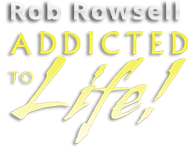In this final installment of his Winning the Money Game series, Rob Rowsell encourages us to reimagine and plan life after retirement. You should still have plenty of good years ahead if you’ve followed Rob’s advice. In order to make the most of the post-career era of life, you need to keep up with the times. Never stop learning, and be a good steward of the money you’ve accrued. Don’t take stupid risks with it! This cash will ensure you can follow God’s path for your golden years!
 Plan Life After Retirement
Plan Life After Retirement
You’ve followed Rob’s Money Game advice to the T. Now, let’s reimagine and ask ourselves “what’s next?” Have you ever really thought about what you would do post career when you plan life after retirement? Rob recommends the book “Halftime” by Bob Buford. He has gained a lot of wisdom and a new perspective from it.
We want to take a few key steps when we plan our new life post career. First, we want to Lock In The Win, meaning we want to be good stewards of our ongoing Passive Residual Income, as well as the bag of money we’ve earned for retirement. Never risk what you need for what you don’t need.
Next, we need to Design The Next Chapter. You still hopefully are healthy and plenty of years ahead of you, so live like it! Even if your dreams and goals for the future are huge, write them down, and plan out how you can achieve them.
Stay Engaged and Stay Relevant. It is more important than ever to keep up with ever growing technology and trends. Rob uses the example of automating many of our daily tasks with AI and ChatGPT. These technologies are only going to become more integrated into our world. Therefore, getting familiar with them while they are still in their relative infancy is a good idea. Rob also suggests exploring topics you want to learn more about on Meta Reels and Tiktok, then saving the ones that you find particularly useful to revisit later.
Finally, and possibly most fun, Enjoy the Compound Curve. You have a lot of experience at this point being a wealth manager. At this point, you are accruing wealth with literally no effort through Passive Residual Income. So sit back and enjoy it!
Want More Wealth Tips? Join Our Community!
Do you own multi-family properties? If not, do you aspire to one day? Then you should consider joining our online discussion group, the ATL Community! Each month, Rob Rowsell will teach you what you must do in order to build wealth in the real estate business. It’s not as easy as it looks! Property taxes, liens, and legal fees can all be hard to navigate, so having a successful guide in your corner like Rob is a must! Sign up today!

 Passive Residual Income Explained
Passive Residual Income Explained Investing For Maximum Return – Building Assets and Repurposing Them
Investing For Maximum Return – Building Assets and Repurposing Them Earning Active Income – The First Step to Winning the Money Game
Earning Active Income – The First Step to Winning the Money Game Build A Successful Company – Step By Step To An Extraordinary Business
Build A Successful Company – Step By Step To An Extraordinary Business